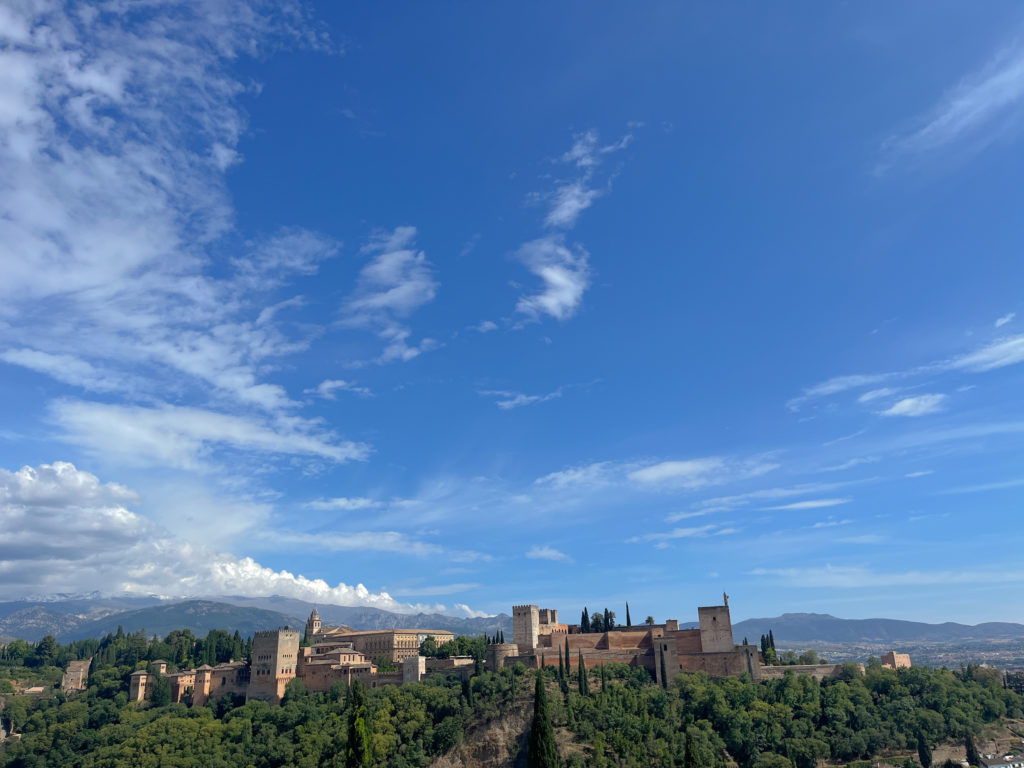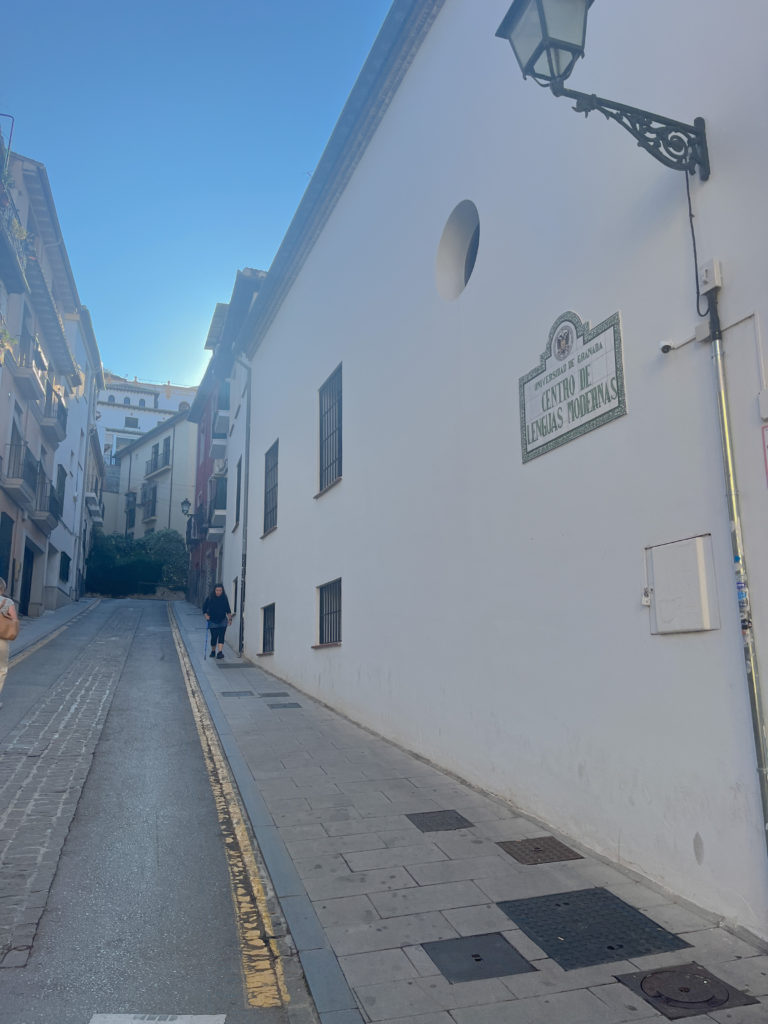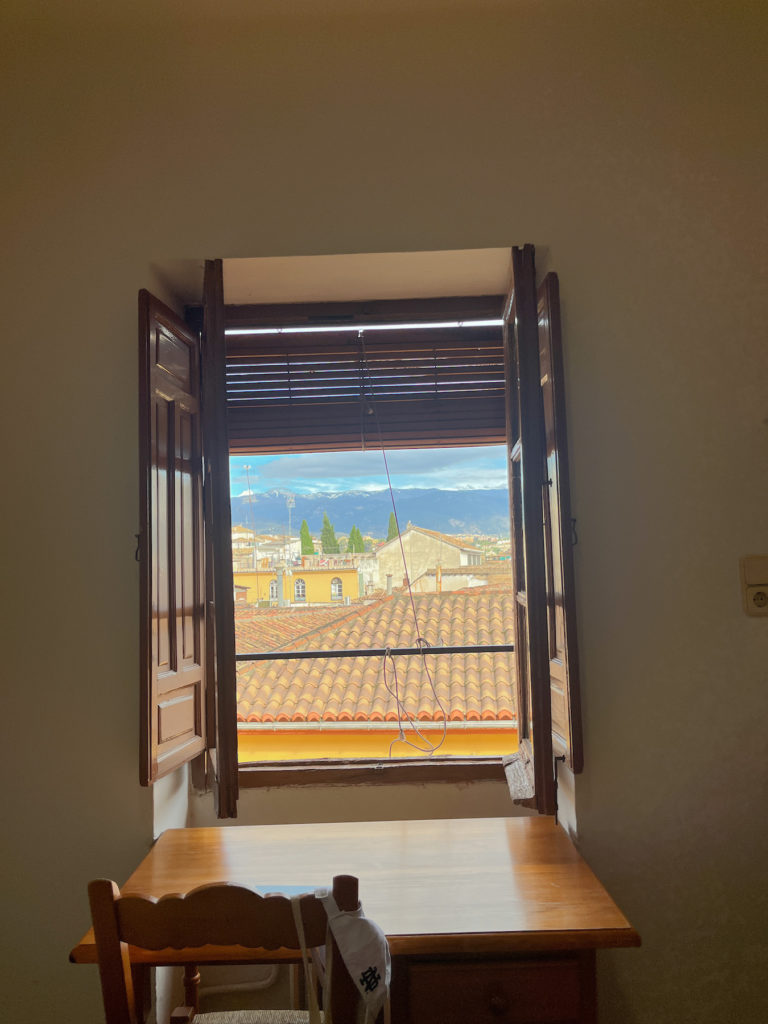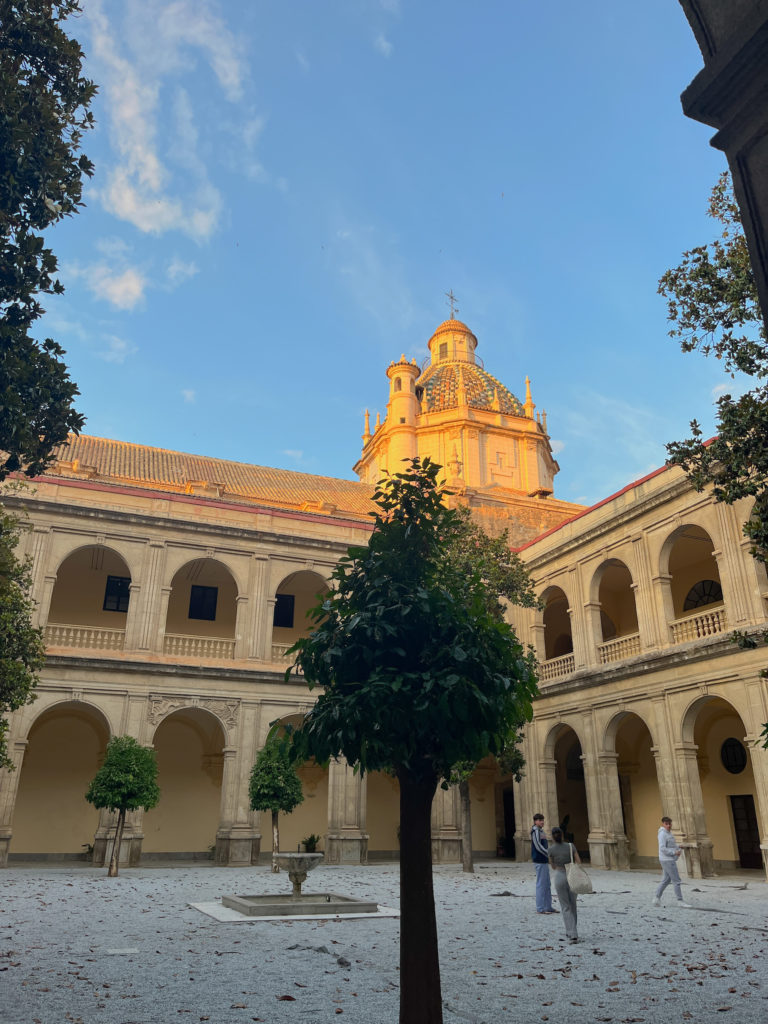
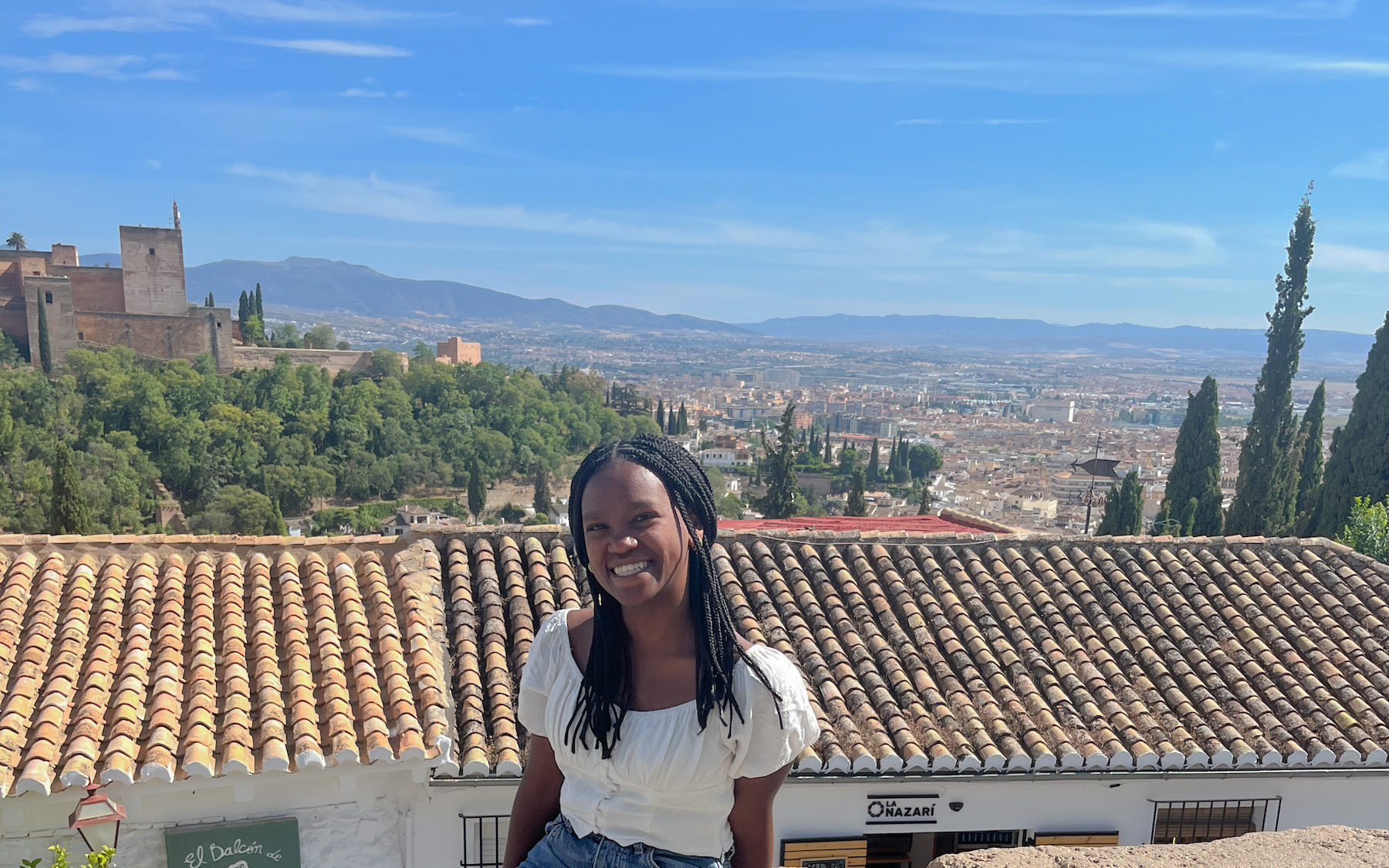
Tomorrow marks the official start of my third week in Granada. In the time that I have been here, I have lived in a residence hall very similar to one you might find on campus at Notre Dame- except it is not single gender. El Colegio Mayor Santa Cruz la Real has a strong community of students who are often studious, sometimes boisterous, and always welcoming . Similar to a Notre Dame dorm, the colegio has a unique culture and engages in friendly competition with other residence hall’s scattered throughout the city. The majority of students living here have come to the University of Granada from throughout Andalusia and Southern Spain and they are preparing for and taking their final exams. There are a few international students who are directly enrolled in the University of Granada and five other Americans who are enrolled into the Center for Modern Languages to learn Spanish. The resulting student body is very multicultural and a great community for language learning. The colegio has integrated community-building “rules” that encourages students to interact with new people at each mealtime. Instead of picking up a meal tray and sitting only with English speakers or people who you have already met, new students are told that they must sit at a table that has already been formed. This feature along with the outgoing nature of many of the Spanish students have made meals an enjoyable and often interesting experience and have improved my language acquisition experience.
On my second day in Granada, I took a Spanish proficiency exam to determine which classes I was eligible for at the Center for Modern Languages. Although I dreaded taking the test, I was grateful for the opportunity to see my progression illustrated clearly. That same evening I received my results and was enrolled in two classes that correlated to my reading, writing, and speaking ability. I was excited that my results on the exam correlated perfectly to the level of Spanish I have been taking at Notre Dame. The structure of my school days roughly follows this structure.
8:00- 8:50 a.m. – My alarm goes off and I get ready for my day. I visit the cafeteria for coffee, orange juice, and a traditional Spanish-style tostada. Then, I walk 5 minutes to class at the Center for Modern Languages.
9:00-11:00 a.m – I participate in a two-hour class that is focused primarily on Spanish grammar. We have been doing some review for the first few class periods, so we have focused primarily on the preterite perfect, imperfect, and indefinite form. The class is taught in a Socratic style meaning that we are conversing for a majority of the class period and the professor occasionally stops to point out common grammatical errors and introduce new vocabulary.
11:10-1:00 p.m. – My second Spanish class is also two hours long, but this class focuses primarily on introducing new vocabulary and learning necessary skills for conversation. We spent the first class discussing common Spanish idioms that include body parts. The classes build on each other, so the grammar rules that I learn in the morning class are expected to be implemented into our conversation for the second class and vice versa.
After class, I grab lunch and participate in siesta time. Although I don’t always take a nap, I usually rest in my room, do some homework, review the day’s class content, and prepare for the evening festivities, which don’t begin until after 5:00 p.m. Dinner is not served until 8:30 p.m., but my friends and I have had a lot of fun exploring the Albaicín, watching free flamenco in the center of the city, eating tapas, hiking in the nearby Sierra Nevada mountains, and practicing Spanish outside of university spaces. In addition to discovering Granada, my program has also taken us to Malaga for a historic tour of the coastal city. This last week, class was canceled on Thursday and Friday for the celebration of Corpus Christi. Granada has hosted a week-long fair, flamenco performances, religious parades, and parades for children to celebrate the transubstantiation of Jesus as taught by the Catholic Church. The two weeks I have spent in Granada have been linguistically challenging at times, but I look forward to being able to look back at this time and measure my improvement in comparison to where I began.
